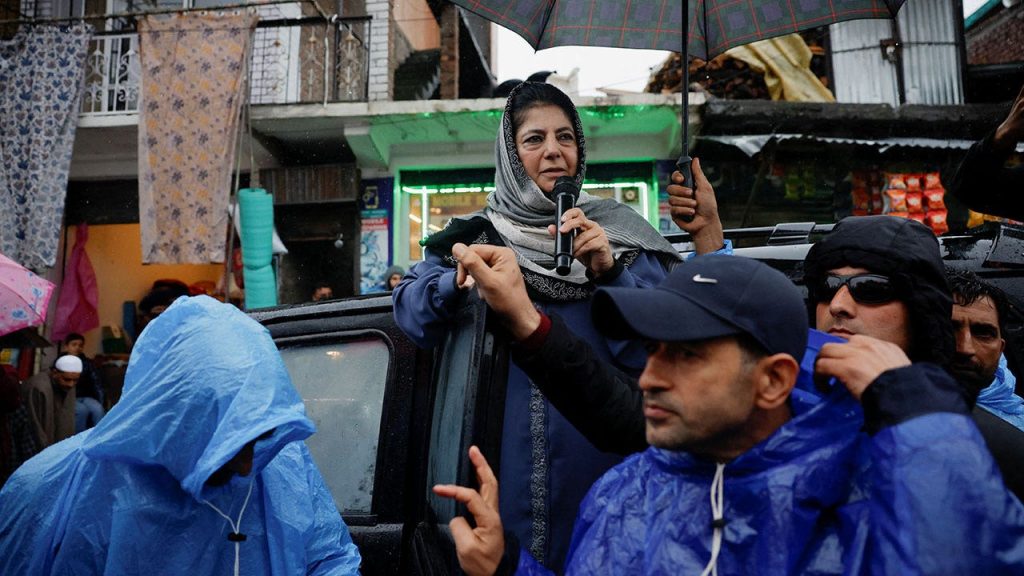Opposition leaders in India’s Kashmir valley have accused Prime Minister Narendra Modi’s government of obstructing their campaign events, alleging that permissions to hold rallies are being denied or cancelled in order to help the ruling party’s “proxies”. This is in the context of the Bharatiya Janata Party (BJP) not contesting elections in Kashmir for the first time since 1996. The government’s controversial revocation of Kashmir’s autonomy in 2019 and its subsequent division into federally-controlled territories has added to the existing tensions in the region. As voting approaches for the first of Kashmir’s three seats, there are accusations of sabotage and bias in the government’s handling of opposition campaign events.
In 2019, Prime Minister Modi revoked Jammu and Kashmir state’s partial autonomy, removed its statehood, and divided it into two federally-controlled territories. This move, along with the BJP’s decision not to field any candidates in Kashmir’s elections, has raised concerns about the party’s intentions and strategies in the region. Opposition leaders such as Omar Abdullah of the National Conference and Mehbooba Mufti of the People’s Democratic Party have accused the police, which is under the federal government’s control, of cancelling permissions for their rallies without providing reasons. It is believed that this action is being taken to support BJP-backed “proxy candidates” in the elections.
Abdullah and Mufti have both expressed their opposition to the BJP and have aligned themselves with an opposition Congress-led alliance of more than two dozen parties nationwide. The Election Commission of India has been asked to intervene in the matter, as the police’s actions are seen as violating the guidelines set by the commission. There have been concerns raised about the impartiality of the upcoming elections and the influence of the ruling party in Kashmir’s political landscape. The state unit of the election watchdog has also warned a PDP candidate against using the election as a referendum on the 2019 decision to revoke Kashmir’s semi-autonomy.
The historical and geopolitical context of Kashmir adds further complexity to the situation, as both India and Pakistan claim the region in full and have a long history of conflict and war over its control. The upcoming elections in Kashmir hold significance beyond the local political dynamics, as they are seen as a reflection of the larger power struggles and tensions in the region. The accusations of interference and bias in the election process have raised concerns about the fairness and integrity of the democratic process in Kashmir, and have highlighted the challenges faced by opposition parties in campaigning against the backdrop of government obstruction.
As the campaign events unfold and accusations of government interference continue to mount, the elections in Kashmir have become a focal point for discussions on democracy, autonomy, and political representation in the region. The opposition leaders’ allegations of sabotage and bias by the ruling party have brought attention to the complex power dynamics at play in the contested region. The outcome of the elections and the conduct of the government in the lead-up to voting will have far-reaching implications for the future of democracy and governance in Kashmir, and will further shape the relationship between the region and the central government in India.


